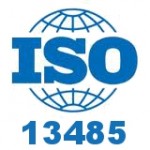On April 9, the U.S. District Court for the Western District of Pennsylvania entered a consent decree of permanent injunction against Philips RS North America (“Philips Respironics”), Respironics California, Philips Holding USA, and Roy Jakobs, CEO of Royal Philips, along with several other individual defendants named in the decree. The consent decree restricts the production and sale of new continuous positive airway pressure (CPAP) machines, bi-level positive airway pressure (BiPAP) machines and other devices at several Philips Respironics facilities in the U.S. until certain requirements are met.
The decree also requires implementation of a Recall Remediation Plan, agreed to by the FDA and Philips Respironics, to help ensure relief is provided to patients impacted by Philips Respironics’ June 2021 recall of certain ventilators, CPAP and BiPAP machines, by way of receiving a new or reworked/remediated device or, for certain devices, providing the option for a partial refund.
The consent decree comes after Philips Respironics recalled certain ventilators, CPAP and BiPAP machines in June 2021 because of potential health risks—impacting 15 million devices worldwide. The polyester-based polyurethane (PE-PUR) foam used in these devices to reduce sound and vibration can break down. If the foam breaks down, black pieces of foam, or certain chemicals that are not visible, could be breathed in or swallowed by the person using the device. Immediately following Philips’ recall, the FDA issued an alert notifying device users that problems reportedly associated with the PE-PUR foam breakdown could potentially result in serious injury and may require medical intervention to prevent permanent injury.
The complaint, filed by the Department of Justice on behalf of the FDA, alleged that Philips Respironics violated the Federal Food, Drug, and Cosmetic Act (FD&C Act) by introducing devices into interstate commerce that are adulterated because the devices were not manufactured in accordance with current good manufacturing practice requirements. In addition, the complaint alleged that the company introduced devices into interstate commerce that are misbranded because it failed to provide the FDA with information about specific corrections (or removals) the company made to devices, as required by FDA regulations. Both of these violations were noted in the FDA’s 2021 inspection of the company’s Murrysville, Pennsylvania, facility. The complaint further alleged that additional violations of current good manufacturing practice requirements were observed at Philips Respironics’ Mt. Pleasant, Pennsylvania, facility in 2023, and during several inspections of its subsidiary’s facility in Carlsbad, California, which has ceased manufacturing operations.
“The finalization of this decree is a significant milestone. Throughout this recall, we have provided patients with important health information by issuing numerous safety communications and have taken actions rarely used by the agency to help protect those impacted by this recall,” said Jeff Shuren, M.D., J.D., director of the FDA’s Center for Devices and Radiological Health. “Today’s action is a culmination of those efforts and includes novel provisions aimed at helping ensure that patients receive the relief they have long deserved. This also marks the first time a device company is providing a remediation payment option for a recalled device under a consent decree.”
With certain exceptions, the consent decree restricts the Defendants from manufacturing and distributing devices at or from the Philips Respironics facilities in Pennsylvania and California, until the Defendants have completed the repair/rework, replacement and refund activities set forth in the Recall Remediation Plan, and are in compliance with requirements applicable to current good manufacturing practice, and reporting corrections and removals. The company must receive written notice from the FDA that they are in compliance with these requirements before resuming operations. The company can continue to manufacture and distribute certain devices that the FDA has determined to be “medically necessary,” which are specified in the decree, as well as replacement parts and accessories to support the use of devices in customers’ possession.
“Medical device manufacturers have a responsibility to comply with requirements designed to ensure the safety and effectiveness of their products,” said Principal Deputy Assistant Attorney General Brian Boynton, head of the Justice Department’s Civil Division. “Today’s action reflects our commitment to vigorously enforce federal law and prevent manufacturers from marketing adulterated and misbranded devices to vulnerable patients who need them.”
Recall Remediation Plan
The Recall Remediation Plan outlines required remediation options based on device type, as well as timeframes for the company to complete certain remediation activities for patients impacted by this recall. More specifically, remediation options include a remediated device (either a new or reworked unit of the same model type, or a new unit of a functionally equivalent model type) with a renewed warranty or, for certain device models, issuance of a refund (factoring in depreciation of the device). As part of this plan, Philips Respironics is also required to make several attempts to contact a patient and/or durable medical equipment provider within a certain timeframe regarding actions they must take (e.g., register the device serial number, elect a remediation option, provide prescription information, etc.) to help ensure patients receive remediation in a timely manner.
The FDA’s Center for Devices and Radiological Health (CDRH) previously issued a notice proposing that an order be issued, under section 518(b) of the FD&C Act, requiring Philips Respironics to submit a plan for the repair, replacement or refund of the purchase price (less a reasonable allowance for use) of recalled devices manufactured after November 2015. The provisions outlined in the Recall Remediation Plan agreed to by the FDA and Philips Respironics are intended to provide the relief for patients that CDRH sought through the 518(b) process.
Key Consent Decree Provisions
In addition to the requirements noted above, the decree contains other provisions aimed at helping to ensure patients receive relief, and that the company completes necessary testing and follows current good manufacturing practice requirements. Examples include:
Export Restriction for Commercial Distribution. With respect to CPAP and BiPAP devices that are being used to remediate patients impacted by the recall, the decree generally prohibits the Defendants from exporting those devices for commercial distribution unless:
- All U.S. patients who registered by a certain date and who could be remediated with the device to be exported have been remediated
- The Defendants are meeting the timeframes for steps in the remediation process set forth in the Recall Remediation Plan
- The Defendants have enough devices in stock to address U.S. demand for that particular recall remediation device model for the next 12 months
Testing Requirements. The decree also requires the Defendants to contract with an independent testing expert within 10 days of entry of the decree to review and evaluate their testing, including biocompatibility data, on the new, silicone-based foam the company is using to replace and rework some machines impacted by the June 2021 recall. This independent expert will assess, among other things, Philips’ plan for testing the silicone-based foam, including testing that has been completed, is ongoing, or is planned, to ascertain whether that testing will enable a determination that the silicone-based foam does not degrade during the labeled service life of the device and does not introduce any new or similar potential health concerns to the PE-PUR sound abatement foam. The testing expert will submit findings of this evaluation to the FDA for review. The company will be required to submit a plan to the FDA to address any gaps in testing, analysis or other information that may be identified by the expert.
Assuring Regulatory Compliance of other Respironics’ Facilities. The consent decree also requires the Defendants to retain an independent expert to inspect their other Sleep and Respiratory Care facilities (other than the facilities in Pennsylvania and California) to evaluate whether those facilities are operating in compliance with the FD&C Act and to correct any deficiencies that are identified. In addition, the consent decree allows the FDA to subject other facilities owned by the corporate defendants to certain provisions of the decree if the FDA determines, based on a future inspection, that those facilities are not operating in compliance with the FD&C Act and its implementing regulations.







